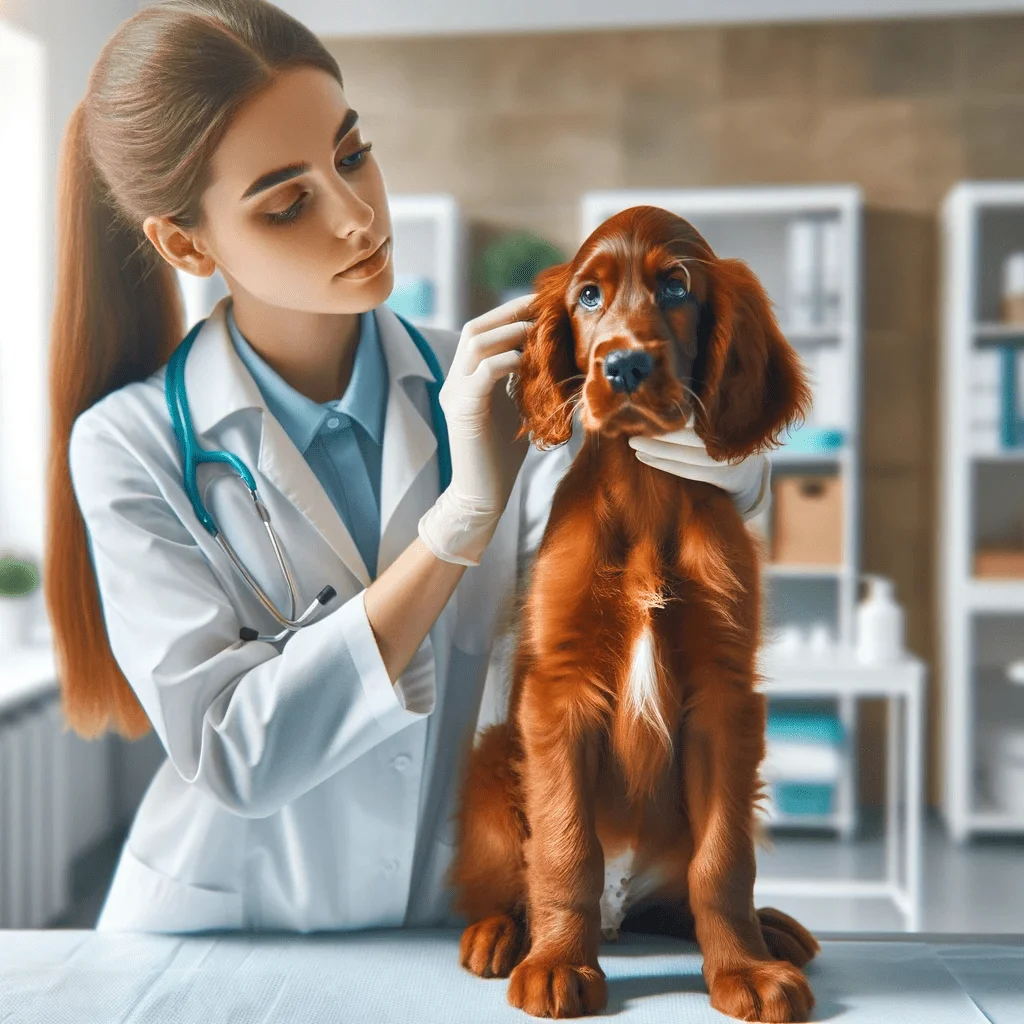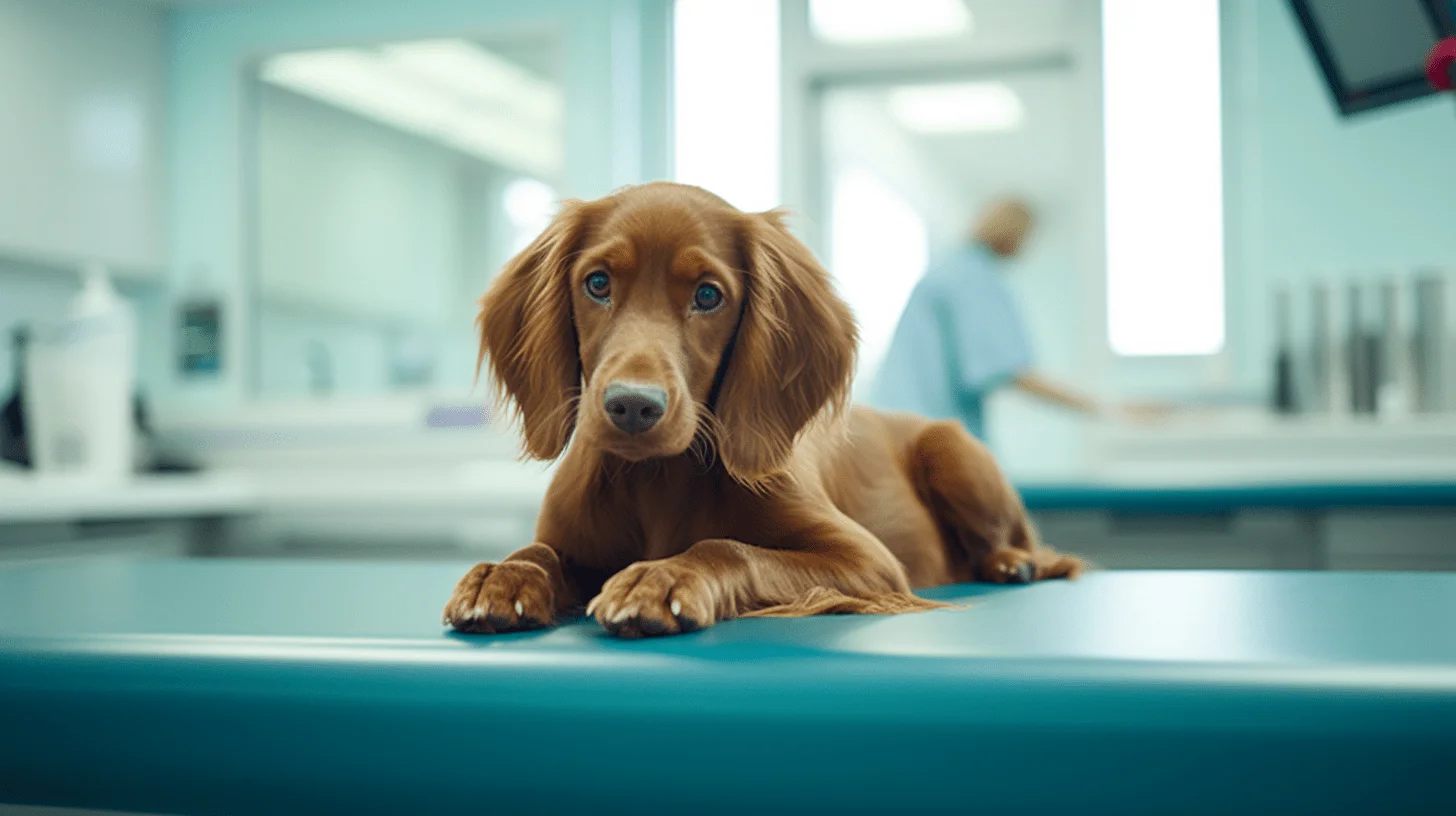How Do I know If my Puppy has Worms?
Puppy Worm Signs
Look for signs such as visible worms in stool or fur, diarrhoea, vomiting, weight loss, bloated belly, dull coat, and lethargy. Regular vet check-ups and faecal tests are crucial for detection and treatment.
Understanding Worms in Puppies
Worms in puppies are common but treatable. It’s important to spot and treat them early. If not treated, worms can cause serious health problems like malnutrition and anaemia. Knowing the signs of worms and getting quick treatment is very important.
Early detection helps treat the puppy effectively and stops the worms from spreading to other pets and sometimes humans.
In the UK, puppies commonly encounter several types of worms, including roundworms, hookworms, tapeworms, lungworm, and whipworms. These parasites can be contracted in various ways, such as from their mother’s milk, contact with infected soil, or ingestion of fleas carrying tapeworm eggs.
Worm infestations can pose serious health risks to puppies, including poor growth, nutritional deficiencies, and in severe cases, life-threatening conditions. It’s vital for pet owners to be aware of these risks and take preventive measures.
Signs and Symptoms of Worms in Puppies
The signs and symptoms of worms in puppies can vary depending on the type of worm, but common indicators include:
- Visible Worms: You may see worms or worm segments in the puppy’s faeces, vomit, or around the anus.
- Diarrhoea: This might include bloody diarrhoea, especially in severe infestations.
- Vomiting: Some puppies might vomit, which can sometimes contain worms.
- Weight Loss or Poor Growth: The puppy may not gain weight or could lose weight, despite having a good appetite.
- Bloated or Pot-Bellied Appearance: This is especially common with roundworm infestations.
- Lethargy: The puppy may appear unusually tired or low in energy.
- Dull Coat: The puppy’s coat might lose its shine, becoming rough or brittle.
- Changes in Appetite: The puppy could show increased or decreased interest in food.
- Coughing: Some worms, like roundworms, can cause a cough.
- Scooting: Dragging their rear on the ground may be a sign of discomfort caused by worms.
If you notice any of these symptoms, it’s advisable to consult a veterinarian for proper diagnosis and treatment.
Diagnosing and Testing For Worms in Puppies
Diagnosing and testing for worms in puppies involves a few steps:
- Veterinary Examination: A veterinarian will start with a physical examination and review the puppy’s medical history and any symptoms reported by the owner.
- Fecal Examination: The most common and initial test is a fecal exam, also known as a fecal float. A fresh stool sample is collected and examined under a microscope to detect the presence of worm eggs.
- Blood Tests: For certain types of worms, like heartworms, a blood test may be necessary. This test can also help assess the puppy’s overall health, which can be impacted by worm infestations.
- Regular Testing: Puppies are often more susceptible to worm infestations and may need more frequent testing compared to adult dogs. This is because their immune systems are still developing, and they can be exposed to worms from their mother.
- Preventative Treatment: Vets often recommend a regular deworming schedule for puppies, starting from a few weeks old, even before any signs of worms are present.
- Additional Tests: In some cases, additional tests like fecal smears may be used for a more accurate diagnosis, especially if initial tests are inconclusive.
Remember, early detection and treatment are crucial in puppies due to their vulnerability to health complications from worm infestations. Regular vet visits and adherence to a deworming schedule are essential for keeping puppies healthy.

Treatment For Worms in Puppies
In the UK, the treatment options for puppies with worms typically include:
- Oral Dewormers: These are the most common treatments. They come in tablet or liquid form and are effective against various types of worms. Puppies are often started on these treatments at a young age.
- Spot-On Treatments: Some spot-on treatments, applied to the skin, are effective against certain types of worms. They are usually used in conjunction with oral medications.
- Prescription Medications: Based on the type of worm and the severity of the infestation, the vet may prescribe specific medications. These are often more potent and targeted.
- Regular Deworming Schedule: Puppies in the UK are typically put on a deworming schedule starting from a few weeks old. The schedule and type of dewormer will depend on the puppy’s age, weight, and health status.
- Environmental Cleanliness: Keeping the puppy’s living area clean is important to prevent re-infestation.
- Nutritional Support: Proper nutrition is crucial, especially if the puppy has been weakened by the worms.
- Follow-up Tests: After treatment, follow-up fecal tests may be recommended to ensure the worms have been fully eradicated.
It’s important for puppy owners to work closely with their vet to choose the most appropriate treatment and preventive measures.
Preventive Measures to Decrease the Chance of Worms in Puppies
To give your puppy the best chance at avoiding worms, you should follow these guidelines:
- Regular Deworming: Puppies should be dewormed every two or three weeks until they are 12 weeks old, then monthly until they are six months old. After that, it’s typically recommended to deworm every three months, although this can vary based on your dog’s lifestyle and your vet’s advice.
- Flea Control: Fleas can carry tapeworm larvae. Keeping your puppy flea-free is an essential step in preventing tapeworm infections.
- Prevent Access to Slugs and Snails: Lungworm is often spread through eating infected slugs, snails, or even frogs. Try to prevent your puppy from eating these while outside. This can be challenging, so discuss preventive medications with your vet.
- Clean Up After Your Puppy: Quickly dispose of your puppy’s faeces. This reduces the risk of spreading intestinal worms.
- Regular Veterinary Check-ups: Regular check-ups can help detect and treat any worm infestations early.
- Lungworm Prevention: Ask your vet about medications that can prevent lungworm, as not all standard worming treatments cover lungworm.
- Avoid Contaminated Areas: Keep your puppy away from areas known to be contaminated with the faeces of infected animals.
- Healthy Diet and Clean Water: Feed your puppy a balanced diet and provide clean, fresh water to keep their immune system strong.
- Education and Awareness: Be aware of the signs of worm infestation, such as weight loss, a dull coat, diarrhoea, or coughing, and seek veterinary advice if you notice any of these symptoms.
Remember, the best course of action is to consult with your veterinarian, as they can provide tailored advice based on your puppy’s specific needs.




